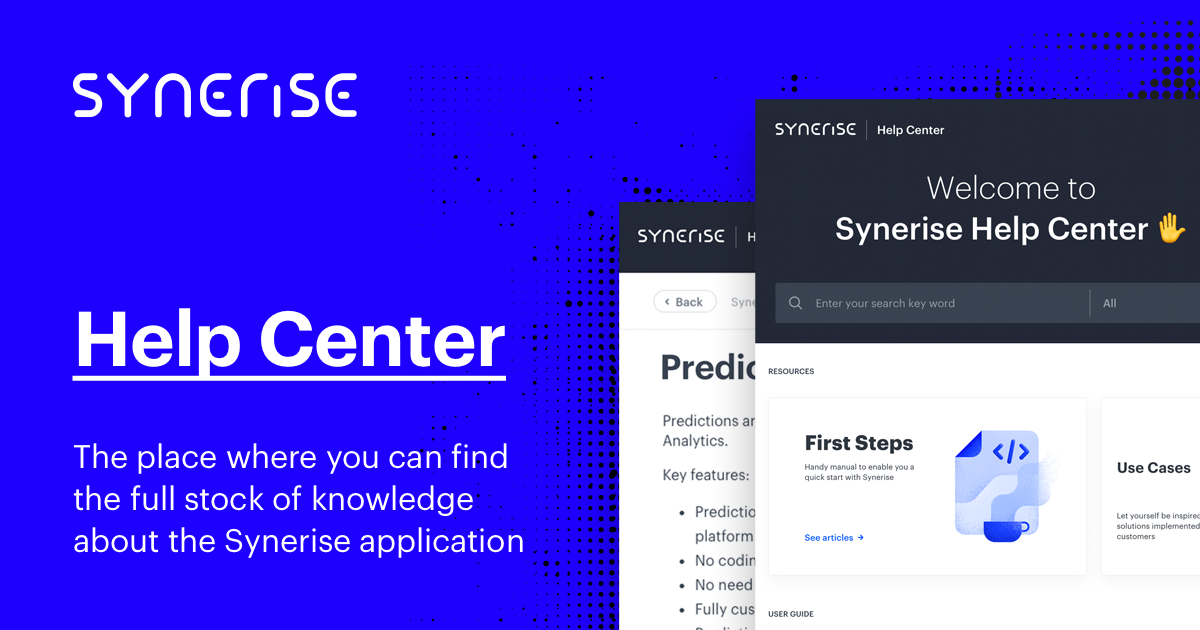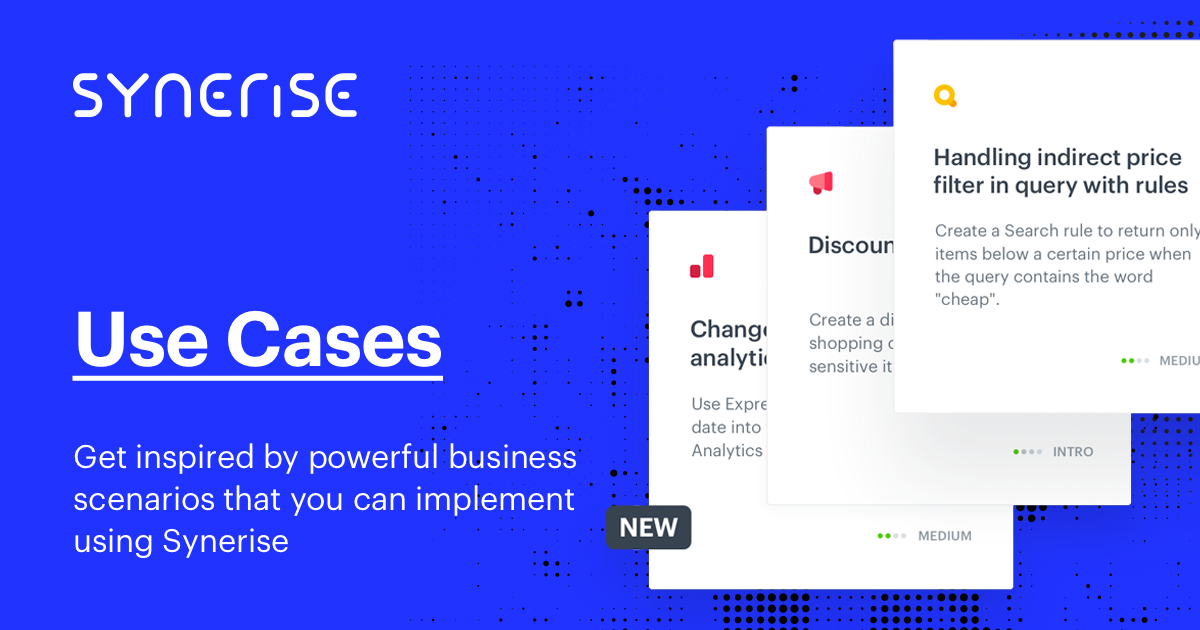STEP 2 Integration timeline
Introduction
Each project is unique and has its own specifics. While starting the implementation process it’s important to define the business cases you want to achieve and deadlines you want to reach. As you have only 2 months for the Synerise implementation and ROI report, the common mistake you might make is to focus too much on the integration checklist itself and through the whole team on the integration tasks in order to finish them asap.
On the one hand, such approach is great, because having all of the integrations from the beginning, you’ll have the full freedom in the use cases launch later on.
On the other hand, you have 2 month to show the ROI. If you focus all of the resources on integrations, you might not have time to deliver the business value. There might be different unexpected challenges during the integration process that might block you from moving from integration phase to use cases one ( for e.g. you want to integrate your SMTP with Synerise. Integration itself will be done in a few minutes, however it might turn out that your SMTP is not prepared for the mass mailing and you’ll need to increase the limits/ capacity, which might take time).
Solution:
Below, you’ll find a timeline that will address all of the initial integrations but those are chosen the way that will allow you to launch business use cases almost immediately. You’ll start from the simpler integrations or the ones that will allow you to achieve KPI’s faster. You’ll work simultaneously on integrations and delivering business results.
Best practices
Best practices before the project starts:
This timeline should be treated as an example. Its scope can be implemented a lot faster or, in some cases, postponed.
At the beginning of implementation process there will be an integration phase. The developer on the client side should be available during this process.
While confirming the timeline, we should check if we can deliver the campaign templates in the defined time period (e.g. email templates).
Example timeline
| TIMELINE | Sprint I (2 weeks) | Sprint II (2 weeks) | Sprint III (2 weeks) | Sprint IV (2 weeks) |
|---|---|---|---|---|
| Integration | Tracking code OG Tags Product feed Training of AI models Email account and DNS configuration |
Training of AI models Transactions Historical transactions – import Implementation of AI recommendations Defining requirements for marketing agreement integration Defining requirements for AI search |
IP warm up CRM base Collecting form data AI search – beginning of implementation |
Custom events Web push / SMS integration AI search – implementation External integrations ( e.g. Facebook, BigQuery, etc) |
| Possible scenarios | Similar recommendations Personalization campaigns on the website based on analytics (personalized banners, progressive forms, etc.) Analytical dashboards and clients segmentation based on the events from the website. For example: popular categories, sources of visits, visits funnels, top viewed products, etc. |
Cross sell recommendations on product page Personalized recommendations on home page, empty cart, categories, 404 error pages A/B tests of website personalization Advance analytical dashboard with sales/revenue data |
Abandoned cart use case AI recommendations in emails In case we have enough data, you can launch AI predictions and more advanced analytics, AI segmentation campaigns |
Product similar to the whishlisted products Web push campaigns SMS campaigns At this stage, you can use AI recommendations both in emails, sms, webpushes Send events to Facebook based on AI predictions (e.g. churn segments, customers with the highest propensity to buy, to convert via FB channel) |

